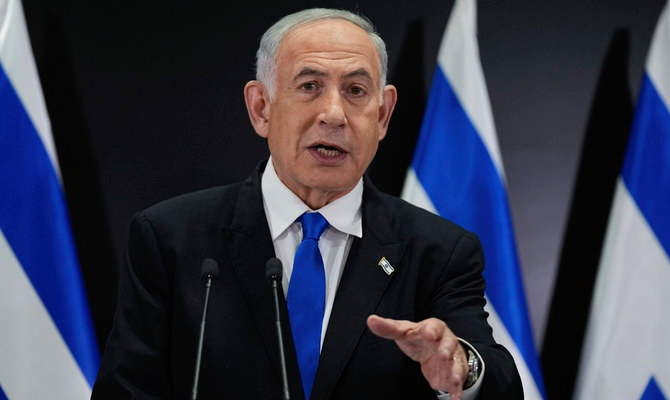Benjamin Netanyahu is trapped between the devil and the deep- a military campaign with no visible end state and rising political opposition at home.
Prime Minister Benjamin Netanyahu recently underscored the intricate nature of his situation, asserting, “We are committed to bringing our hostages home while ensuring the security and stability of our nation. This delicate and formidable task requires utmost diligence and care.“
The appalling death toll in Gaza does not solely explain the intensity of the international outcry; additional factors, including historical, political, and social contexts, invariably come into play whenever the Israel-Palestine issue is gaslighted.
Having made little progress in rescuing the hostages still with Hamas, concealed somewhere in the devastated moonscape of the Gaza Strip, Mr Netanyahu has little success that he can claim. As per Amnesty International (12 Jul 24), an estimated 116 people are believed to be held hostage or captive by Hamas and other armed groups in Gaza since 7 October, including 43 whose deaths were confirmed by Israeli authorities. At least 79 of those held in captivity are believed to be civilians. According to the Hostages and Missing Families Forum in Israel, signs of life had been received from 33 hostages as of 18 May. The hostage issue has significantly torn Israeli society apart. This predicament has significantly complicated Netanyahu’s stance, akin to walking a tightrope over a pit of crocodiles while juggling flaming torches.
Netanyahu is attempting to gain support from ultra-nationalist ministers Itamar Ben-Gvir and Bezalel Smotrich by arguing that any potential deal with the U.S., which involves releasing hostages, would not signify the end of military operations against Hamas. Netanyahu is also demanding that Israel be allowed to resume fighting at any stage of a cease-fire agreement, which has frustrated Egyptian, Qatari, and Israeli security officials, while U.S. mediators seem less anxious.
Background
Prime Minister Benjamin Netanyahu is struggling to balance the demands of his far-right coalition with maintaining Israel’s diplomatic standing. President Biden’s proposed hostage release and cease-fire deal has forced Netanyahu to make contradictory statements to appease his far-right partners. The contentious point is Article 14 of Biden’s plan, which mandates that all procedures, including the cessation of military operations and withdrawal of forces, continue as long as negotiations for the second stage are ongoing.
Experts highlight the difficulties of locating and rescuing the hostages, given Gaza’s challenging environment for Israeli intelligence. Hamas has demanded the release of all Palestinian prisoners in Israeli jails in exchange for the hostages, further complicating Netanyahu’s position. The issue of prisoners is highly emotional for both Israelis and Palestinians. The Palestinian Authority allocates a significant portion of its budget to support prisoners held in Israeli jails and their families, while Israelis view these prisoners as terrorists.
Prime Minister Benjamin Netanyahu of Israel is facing two simultaneous challenges: a military campaign in Gaza that has not resulted in any dramatic victories and a rising storm of political opposition at home. His government seems to be faltering on both counts. Despite months of conflict and prolonged negotiations, Hamas remains undefeated, and military leaders admit the war, which has devastated Gaza and claimed many lives, is nearing a stalemate.
Politically, too, the picture looks grim for Prime Minister Benjamin, with polls indicating potential electoral defeat. His government, influenced by far-right ministers, staunchly opposes concessions to Palestinians. Despite rejecting offers for a national unity government, Netanyahu remains committed to his current coalition’s hardline stance, supported by figures like Finance Minister Bezalel Smotrich, advocating for tough military actions against Hamas despite the risks involved.
The economy is taking a battering. With the war costing the economy roughly $260 million daily, funding for ultra-orthodox schools and other causes favoured by right-wing coalition members is causing significant issues for Prime Minister Benjamin Netanyahu.
The situation is fraught with complexity and uncertainty, compounded by public sensitivity to hostage crises and historical precedents of intense campaigns for hostage exchanges. It is like performing surgery with a dull scalpel, where every action must delicately balance political survival, public opinion, and security imperatives.

Analysis
Prime Minister Benjamin Netanyahu’s efforts to resolve the crises in Gaza and at home are conflicting. He seeks a historic peace deal with Saudi Arabia, which requires an Israeli commitment to a two-state solution. However, to maintain his right-wing coalition, he must reject a Palestinian state. Despite his reputation for political survival and past successes, such as the 2020 diplomatic deals with Arab states, Netanyahu’s current predicament is more challenging.
If Netanyahu loses the support of the far-right or decides to abandon it, he could ally with centrist leaders like former army chief Benny Gantz or opposition leader Yair Lapid, who recently offered support for a hostage deal. Such a coalition would enable him to negotiate for the hostages’ release and potentially allow a reconstituted Palestinian Authority, which governs parts of the West Bank, to take control of areas in Gaza where Hamas has been weakened. Balancing the demands of his coalition, the pressures of international diplomacy, and the urgent need to resolve the hostage crisis requires an intricate strategy, with each decision carrying significant risks and potential consequences.
Netanyahu faces criticism for his contradictory stances on Palestinian statehood. He presents a tough image to his domestic audience while suggesting a willingness to negotiate with Saudi Arabia. Critics like Avigdor Liberman accuse him of playing a double game, telling Israelis he opposes a Palestinian state while reassuring Saudis of a possible solution. Clearly, October 7th caught the government by surprise, and the military offensive was a knee-jerk reaction with no end state in mind for post-war Gaza.
The ICC arrest warrant for Netanyahu for alleged war crimes also cannot be brushed aside as it will take a lot for Mr Netanyahu to get rid of this stigma internationally. Personally, in addition to his early conviction for corruption by an Israeli court, the ICC move threatens his personal freedom. This will no doubt make him further harden his stand.
Assessment
- The Palestinian right to statehood is internationally recognised, and Israel cannot brush it under the carpet. The West, including the U.S., is quickly losing patience, and a solution may be forced upon Tel Aviv sooner rather than later. Earlier, the Israelis accepted this stark reality, sooner can they work towards peace in their country and the region.
- Without acceding to a Palestine state, Israel cannot expect formal recognition of its existence as a state by its Arab neighbours. Therefore, some territorial concessions, including in the hypersensitive East Jerusalem, may be in order for the sake of permanent peace in the region.
- None of Israel’s other declared objectives, including the elimination of Hamas, the release of hostages, or the restoration of public safety, have been met. As global isolation looms over Israel, the Prime Minister needs to make tough decisions.




